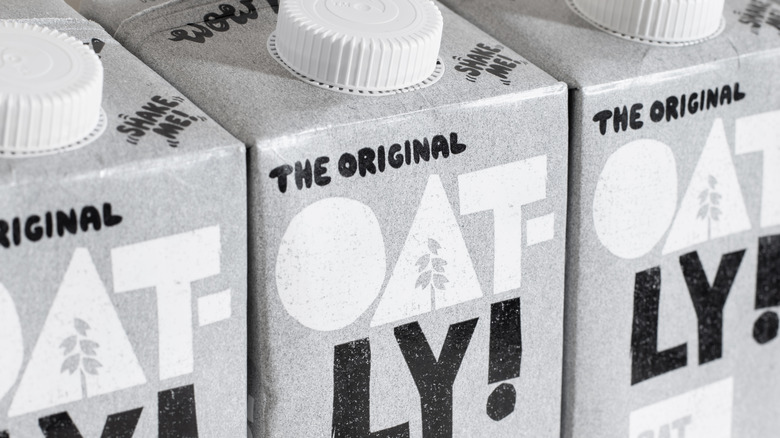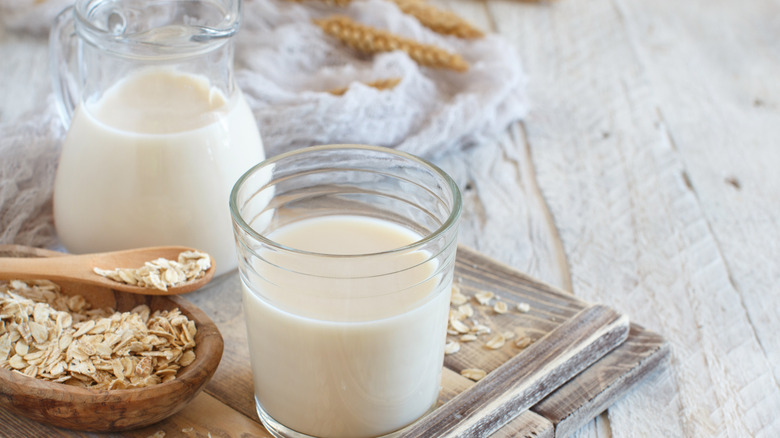Does Oat Milk Have Calcium?
Non-dairy milk has become increasingly popular in recent years, especially among those who are vegan or lactose intolerant. One plant-based alternative that has gained quite a bit of attention as of late is oat milk. According to Shape, oat milk is made by soaking steel-cut oats in water, blending them up, and straining them with cheesecloth. Since oats can easily absorb water, oat milk tends to have a creamier texture than non-dairy alternatives made with nuts. As a result, oat milk is a great milk substitute to add to lattes, cappuccinos, smoothies, soups, and baked goods.
Oat milk is also a great option for people who are both lactose intolerant and allergic to nuts, since most non-dairy milk is made from nuts, with the exception of soy milk. Registered dietitian Kelly R. Jones told Shape that most brands of oat milk should also be safe for people who have a gluten intolerance or sensitivity. However, it's important to check the label before you buy it to make sure it's gluten-free.
Oat milk is a good source of calcium
In addition to being free of most allergens, oat milk is also highly nutritious, especially if it's fortified. In fact, oat milk contains many plant-based proteins, vitamins, and minerals, including iron, magnesium, potassium, vitamin D, and vitamin A. It's also a good source of calcium (via Good Housekeeping). That's because oat milk is often fortified and enriched with a variety of nutrient-dense ingredients that are commonly found in cow's milk.
While the exact amount depends on the type and brand of oat milk, 1 cup of fortified oat milk provides around 25% of your daily value of calcium (via Healthline). This is great for your overall bone health. Since calcium is the main mineral used to form bones in the first place, consuming an adequate amount of calcium on a daily basis can help you maintain strong and healthy bones and lower your risk of osteoporosis — a condition characterized by fragile and porous bones.


